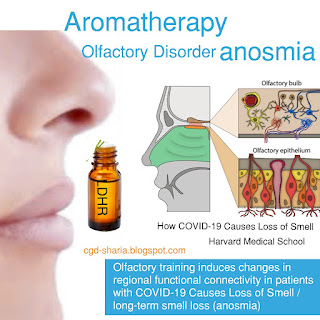All about AROMATHERAPY, Well-being and Healing
Aromatherapy is thought of as both an art and a science. Recently, aromatherapy has gained more recognition in the fields of science and medicine.
Aromatherapy uses aromatic essential oils medicinally to improve the health of the body, mind, and spirit. It enhances both physical and emotional health.
What is aromatherapy?
Aromatherapy is a holistic healing treatment that uses natural plant extracts to promote health and well-being. Sometimes it’s called essential oil therapy.
History of aromatherapy
Humans have used aromatherapy for thousands of years. Ancient Egypt was the true birthplace of essential oils, or 'aromatherapy' as we know it today.
Ancient cultures in China, India, Egypt, and elsewhere incorporated aromatic plant components in resins, balms, and oils. These natural substances were used for medical and religious purposes. They were known to have both physical and psychological benefits.
Essential distillation is attributed to the Persians in the 10th century, though the practice may have been in use for a long time prior to this. Information about essential oil distillation was published in the 16th century in Germany. French physicians in the 19th century recognized the potential of essential oils in treating disease.
Medical doctors became more established in the 19th century and focused on using chemical drugs. However, the French and German doctors still recognized the role of natural botanicals in treating illness.
The term “aromatherapy” was coined by a French perfumer and chemist René-Maurice Gattefossé in a book he wrote on the topic that was published in 1937. He had previously discovered the healing potential of lavender in treating burns. The book discusses the use of essential oils in treating medical conditions.
Rene-Maurice Gattefosse was a chemist who discovered the benefits of essential oils quite literally by accident when, in July 1910, he was involved in a laboratory accident when he badly burnt his hands and turned to lavender oil; he was amazed at the speed with which lavender healed the burn, and how it reduced the pain and scarring that he had anticipated. It was Gattefosse who created the word "Aromatherapie", using it as a title for his book in 1928.
Benefits of Aromatherapy. It’s said to :
🔵 manage pain
🔵 improve sleep quality
🔵 reduce stress, agitation, and anxiety
🔵 soothe sore joints
🔵 treat headaches and migraines
🔵 alleviate side effects of chemotherapy
🔵 ease discomforts of labor
🔵 fight bacteria, virus, or fungus
🔵 improve digestion
🔵 improve hospice and palliative care
🔵 boost immunity
Unproven claims
Scientific evidence for aromatherapy is considered to be limited in some areas. Research to support the use of aromatherapy in treating
🔵Alzheimer’s disease
🔵Parkinson’s disease, and
🔵heart disease is lacking.
Conditions it may treat -
Aromatherapy has the potential to treat many conditions, including:
👉 asthma
👉 insomnia
👉 fatigue
👉 depression
👉 inflammationm
👉 peripheral neuropathy
👉 menstrual issues
👉 alopecia
👉 cancer
👉 erectile dysfunction
👉 arthritis
👉 menopause
https://cgd-sharia.blogspot.com/2017/12/depression-is-symptom-of-imbalance-and.html
Choosing a provider
You may wish to meet with a certified aromatherapist, especially when you’re first getting started with aromatherapy or if you have specific issues you’d like to address.
Consultations with an aromatherapist.
During a consultation with an aromatherapist, you’ll answer questions and talk about your lifestyle and health. Together, you can come up with an individual treatment plan to meet your goals and manage your symptoms. You may have a few sessions with your aromatherapist, or you could decide to have ongoing sessions for a longer period of time.
















Comments